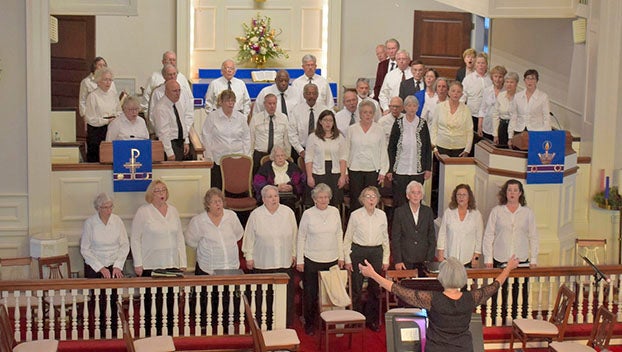Should Buckingham ban gold mining? A committee will answer
Published 2:30 am Wednesday, December 14, 2022
|
Getting your Trinity Audio player ready...
|
BUCKINGHAM – Buckingham County isn’t waiting for the General Assembly to make a decision about gold mining. The Board of Supervisors looks to go their own way. By a unanimous 7-0 decision on Monday, Dec. 12, the group formed a committee to recommend what the county’s next steps will be.
That committee includes two supervisors, District 5 representative Harry Bryant and board chairman Jordan Miles, who represents District 4. They’ll work with Joseph Abbate of Yogaville Environmental Solutions to go over the recently completed state gold mining report and develop options for how Buckingham County can respond. Then the three-person group will return to the full board of supervisors and present the options. At that point, it’ll be up to the full board to choose which path to take.
Miles was a late addition to the committee. The original proposal, made by Bryant, included himself, Abbate and Board of Supervisors Vice Chairman Joe Chambers. Board members wanted Bryant on the committee since it is his district impacted by the gold prospecting done by Aston Bay. However, other members questioned why Miles wasn’t included, seeing as he served on the workgroup that created the state gold mining report.
“I’m not making light of anyone’s contribution, but Mr. Miles served on the state board in regards to gold mining,” Supervisor Don Matthews said. “I would think he would be very knowledgeable about this document. That would be my recommendation, to have someone that has actually been on the state work group.”
Chambers withdrew his name from consideration and proposed Miles in his place. There was no opposition.
A call for action against gold mining
The vote came after supervisors heard an hour of testimony from Buckingham County residents, all of whom asked for the committee to be formed. During the board’s Aug. 8 meeting, supervisors decided to wait until the state report was finished, before determining what route Buckingham would take. Multiple residents pointed out the report is finished, so now is the time they want to see action from their elected leaders.
“(The report) is out and it states clearly that the state will not protect us,” said Buckingham resident Haris Lender. She urged supervisors to do what the state won’t and protect the county from gold mining.
Her request was echoed by others who lined up to speak.
“No amount of poisoning is acceptable,” said Gerry Sackett. The 43-year resident of Buckingham County not to limit gold mining, but to ban it outright.“Regulations permit pollution, they don’t stop it. We want a total ban on all metallic mining. We see no obstacles in your way. Buckingham must lead the way.”
John Laury, meanwhile, pointed out that nobody should expect a decision from the Assembly. Why? Because Republicans control the House and Democrats control the Senate.
“We don’t think this divided Assembly can deliver,” Laury said. “Let’s go on with it and grant protection for Buckingham.”
One part that didn’t go the way the residents in attendance had requested was how supervisors created the committee. Instead of a three-person group, consisting mainly of elected officials, residents had asked that they be involved.
Where’s the gold?
So why is this issue so important to Buckingham County residents? It stems from a situation that started more than two years ago. In April 2019, the Canadian prospecting company Aston Bay Holdings announced they were beginning to search for gold in Buckingham.
To be clear, Aston Bay isn’t a mining company. It’s a prospecting company. That means they search for gold, silver or other minerals, identify and purchase a location, then sell that information (and property) to the highest bidder. They can do this because under Virginia law, prospecting doesn’t require a state permit if you’re searching for anything other than uranium.
In statements given in March 2019 and July 2020, company officials declared their drilling confirmed a “a high-grade, at-surface gold vein system at Buckingham, as well as an adjacent wider zone of lower-grade disseminated gold mineralization.” In other words, they found enough to keep going. At the beginning of 2020, the company secured the right to prospect on 4,953 acres of land in Buckingham County.
In an interview with The Herald last month, Aston Bay CEO Thomas Ullrich said the gold vein they’ve found is almost vertical, approximately one to two meters wide, 200 meters in length and extends into the subsurface to about 100 meters deep.
“This is contained in a very small footprint, on the order of a few acres,” Ullrich said. “It is possible that the vein extends deeper and farther laterally along (the) strike.”
But they still don’t know how far it stretches, as Ullrich added the company was “still in the early stages of exploration.”
As for a timeline on when work might be finished, first it has to be restarted. The company hasn’t done any work in Buckingham since early 2020.
“We have conducted only preliminary exploratory drilling on the local landowners’ properties at Buckingham, and none for the past two years,” Ullrich said. “We have several quality potential projects, but a limited amount of funds. Over the last year and a half, we have been investing in the landowners in another county. We look forward to investing in Buckingham again.”
What happens now with gold mining?
There’s no specific timetable for when the Buckingham committee will bring back recommendations. However, based on Monday’s discussions, that’s expected within the first quarter of 2023.
The General Assembly also has not made any indication what they’ll do with the gold mining report. No lawmakers pre-filed any bills on the issue as of Tuesday, Dec. 13. But that doesn’t mean it couldn’t be added to an Assembly committee’s calendar in January, when the new session begins.






